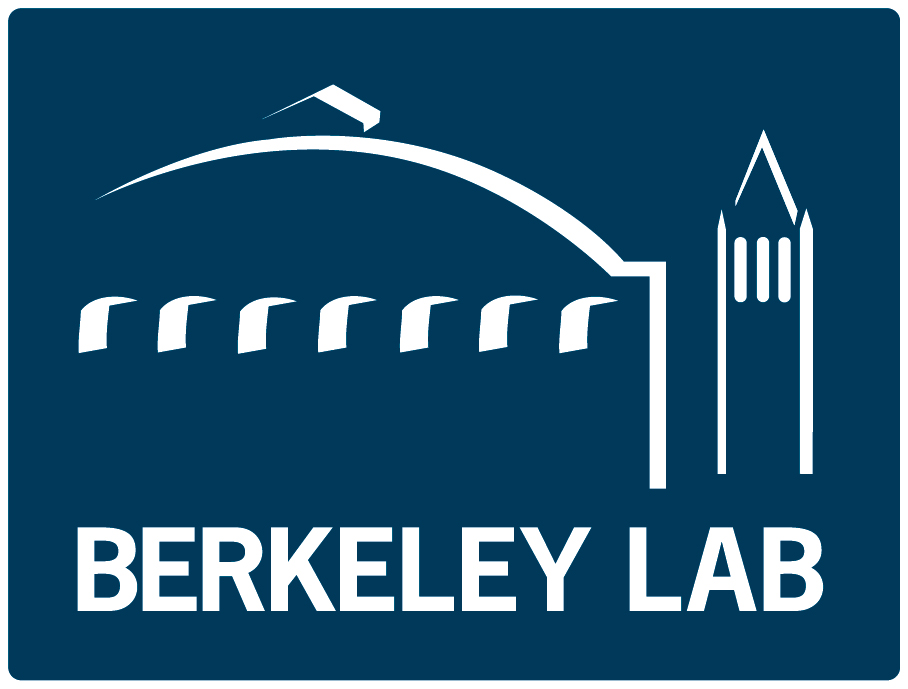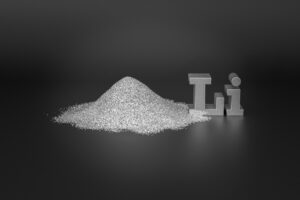Metal Extraction using Novel Nanoscale Polyoxometalates 2024-076
Researchers at Berkeley Lab have developed a polyoxometalate (POM)-based system designed for the selective removal and recovery of critical metals, specifically lithium and magnesium, from nontraditional brine sources. The POM-based system demonstrates a remarkable selectivity ratio for Li+ and Mg2+ of over 1000, rapid separation in under one minute, and facile regeneration of the POM structure, allowing for cost effective separation and recovery.
Inventors: Chaochao Dun, Linfeng Chen, and Jeffrey Urban
Contact: Shanshan Li, shanshanli@lbl.gov
New Low-temperature Process for Extracting Lithium from Alpha Spodumene 2024-019
Scientists at Berkeley Lab have developed a technology that allows for the extraction of lithium from alpha spodumene at temperatures of about 600 ℃ to 800 ℃, less energy intensive than conventional methods that require heating up to 1000 ℃ before acid leaching. In addition, it replaces the sulfuric acid or soda ash used for leaching in current processes with inexpensive and abundant reactants.
Inventor: Michael Whittaker
Contact: Sebastian Ainslie, sainslie@lbl.gov
Electrochemical Leaching of Lithium from Clays 2021-166
Scientists at Berkeley Lab have developed a new electrochemical based lithium extraction method that can eject lithium ions from lithium rich clays to produce a Li+ rich brine. In contrast to current lithium extraction from clay, this electrochemical mining method can eliminate the need for acid leaching, sulfate kiln roasting, and beneficiation, leading to a reduction in water usage and a more environmentally friendly lithium extraction process. The novel electrochemical approach also enables a path towards subsurface electrochemical mining.
Inventors: Andrew Haddad, Robert Kostecki
Contact: Sebastian Ainslie, sainslie@lbl.gov
Separation of Tetravalent Metal Ions using Protein-ligand-based Systems 2016-178
Scientists at Berkeley Lab have developed a simpler, more efficient approach to the separation or purification of metal ions. This process uses siderocalin (or other proteins) as a platform for the separation of metal ions. Siderocalin is able to bind various charged metal complexes through electrostatic interactions. The protein-ligand system therefore acts as a sorting device at a molecular level, due to the formation of high-molecular species which allows for separation based on various fundamental characteristics such as differences in size, mass, polarity, solubility, etc. This process is fast, efficient, scalable and operable at room temperature, ambient pressure, and in fully aqueous solvent.
Inventor: Rebecca J Abergel
Contact: Jeremy Greeter, JGreeter@lbl.gov
Selective Complexation and Separation of Tetravalent Metal Ions from Other Ions 2017-107
Berkeley Lab researchers have developed a class of HOPO-based chelating agents for metal ion separation. Classical aqueous chelators are chemically unable to complex metal ions under highly acidic conditions seen in typical nuclear fuel and medical isotope applications. Thus, the separation of metal ions relies on the (usually poor) selectivity of the extractant or of a solid support. In this technology, an aqueous chelator selectively binds tetravalent metal ions under highly acidic conditions for purification of tetravalent metal ions from other ions. The separation of tetravalent ions bound to the chelator from unbound ions can be achieved using a simple liquid-liquid extraction step, enabling a simple and efficient industrial process for the separation and purification of metal ions.
Inventor: Rebecca J Abergel
Contact: Jeremy Greeter, JGreeter@lbl.gov
Peptoid-Based Chelating Molecules 2017-181
Researchers at Berkeley Lab have developed a class of chelating compounds engineered to target and bind particular metal ions(1-4+) with high specificity. These molecules are tailored to form stable complexes with metals, facilitating their detection, extraction, or neutralization in various settings. Traditional chelators often lack the selectivity required for efficient metal ion targeting, leading to challenges in applications like environmental remediation, medical diagnostics, and industrial processing.
Inventor: Rebecca J Abergel
Contact: Jeremy Greeter, JGreeter@lbl.gov
ECAR: Low Cost Electrochemical Arsenic Removal from Drinking Water Supplies IB-2126
Researchers at Berkeley Lab have developed an inexpensive, effective electrochemical arsenic removal system that effectively removes both arsenic-III and arsenic-V. This technology is applicable to standing or flowing water sources and point-of-use applications. Innovative remediation steps in the Berkeley Lab invention yield an extremely low operating cost that opens the door for small community centers to recover their investment by selling clean water at an affordable price.
Inventor: Ashok Gadgil
Contact: Shanshan Li
Devices for Fresh Water from Ground and Surface Water IB-3121
Researchers at Berkeley Lab have developed an ion removal process through the use of composite resin electrodes. This approach can reduce the concentrations of total dissolved solids in water below levels deemed appropriate for human consumption by the World Health Organization (~500 ppm). Low operation and maintenance costs lend it to be especially useful in developing areas where resources are scarce, however, it can be applied to industrial, commercial, and residential settings, without requiring the use of corrosive chemical regenerators
Inventor: Ashok Gadgil, Robert Kostecki, and Guoying Chen
Contact: Shanshan Li, shanshanli@lbl.gov
Efficient Solar-Thermal, Forward Osmosis Desalination of Wastewater and Produced Waters 2019-042
Researchers at Berkeley Lab have developed a novel, solar-powered wastewater treatment system. This system combines an advanced forward osmosis membrane technology with Berkeley Lab’s recyclable ionic liquid-based draw solute chemistry to provide an environmentally friendly and cost effective process to obtain clean water from wastewater.
Inventor: Jeffrey J. Urban, jjurban@lbl.gov
Contact: Shanshan Li, shanshanli@lbl.gov
Read more about Berkeley Lab’s work regarding lithium extraction and California’s Salton Sea region for domestic lithium reserves.

